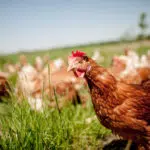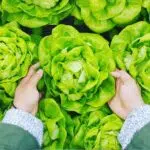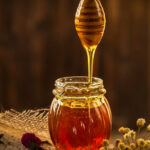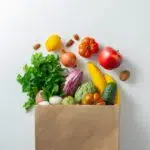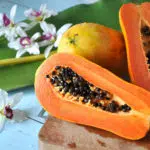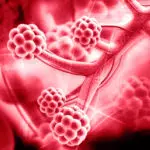National Organic Month is a thirty-day-long annual celebration observed in September. It’s a month-long awareness campaign about organic farming and production. In addition to promoting organic foods, it informs the public about how organic farming improves the environment and ensures that the foods we eat are as close to their natural state as possible. Organic foods are foods produced without using chemically formulated fertilizers, growth stimulants, antibiotics, or pesticides.
History of National Organic Month
The organic movement originated in the early 1900s in response to the early days of modern agriculture’s trend toward synthetic nitrogen fertilizers and pesticides. A small group of farmers formed various organizations, including Demeter International of Germany, which promotes biodynamic farming and established the first certification program. Other groups that were formed were the Australian Organic Farming and Gardening Society, the Soil Association of the United Kingdom, and Rodale Press in the United States. These organizations came together to form the International Federation of Organic Agriculture Movement (IFOAM,) founded in 1972.
Environmental awareness has fueled demand and conversion to organic farming in recent years. Through agricultural subsidy reform, certain governments, particularly from the European Union, have moved to encourage organic farming. The urgency to transform our food systems has never been higher in the face of climate change, diet-related illness, and broad wildlife reduction.
The Soil Association launched a month-long campaign in September 2013 called ‘National Organic Month’ or ‘Organic September,’ to raise awareness of the various benefits of organic food and farming, which include; biological diversity and wildlife protection, contributing to the fight against climate change, reduced pesticide exposure, and high-quality food. Organic food sales exploded in the early 2000s as people realized the link between diet, health, and the environment. Clean labeling and transparency are becoming increasingly popular in the food and beverage industries.
National Organic Month timeline
The organic movement originates in the early 1900s in response to the early industrial agriculture's turn toward synthetic nitrogen fertilizers and pesticides.
Lord Northbourne invents the term ‘organic farming.’
The International Federation of Organic Agriculture Movements (I.F.O.A.M.) is created in Germany.
The global market for organic products including food, beauty, health, body care, and household products, as well as fabrics skyrockets in the 2000s.
The Soil Association U.K. launches a month-long campaign in September called ‘National Organic Month.’
National Organic Month FAQs
What happens to your body when you switch to organic foods?
You’re not only reducing pesticides in your body, but you’re also strengthening your immune system.
What is Organic September?
Organic September is a month-long campaign dedicated to raising awareness of the many advantages of organic food and farming.
In the United Kingdom, what does organic mean?
It refers to organic food grown on farms that do not use synthetic fertilizers or pesticides.
How to Observe National Organic Month
Grow your own food
Grow your own. It's vital to reconnect with where our food comes from by getting our hands in the soil. Growing your own herbs is a simple way to get started.
Support organic farmers around you
Supporting organic farmers by subscribing to a fruit, vegetable, or meat box has numerous advantages. You'll be joining a group of people dedicated to ensuring that the way we farm and eat is better for our health, the environment, and animals.
Treat yourself
Treat yourself to a wide variety of organic products, enjoy a bath in water fragrant with organic oils, or snack on some decadent organic chocolate. Purchase a bouquet of organically cultivated flowers for yourself or a loved one.
5 Facts About Organic Products
Organic food is more expensive
Organic food is usually more expensive than food grown the normal way.
Environmentally friendly alternative
Organic farming is sustainable and protects our natural resources.
Larger product yield
Organic farming often provides larger yields than conventional farming.
Fewer pesticides
The presence of pesticides in the urine of children who eat organic meals is substantially lower than in the urine of children who eat a conventional diet.
Zero pollution of water bodies
Organic farming methods do not pollute streams or soil in the same way that conventional farming methods do.
Why National Organic Month is Important
It’s safe for the planet
Organic agriculture is based on approaches that not only protect but also strive to promote environmental and animal health. Organic farming uses natural products and methods that build up the soil as opposed to depleting it of important nutrients.
Animal welfare and health
Organic farmers place a high value on animal welfare and raise their animals without using antibiotics or synthetic growth hormones. Organic farmers feed their animals 100% organic grain and provide them with safe, clean, cage-free living.
Encourages clean eating
Organic foods encourage clean and informed eating. With organic foods, you avoid putting chemicals, pesticides, growth boosters, and antibiotics into your body.
National Organic Month dates
| Year | Date | Day |
|---|---|---|
| 2024 | September 1 | Sunday |
| 2025 | September 1 | Monday |
| 2026 | September 1 | Tuesday |
| 2027 | September 1 | Wednesday |
| 2028 | September 1 | Friday |













































